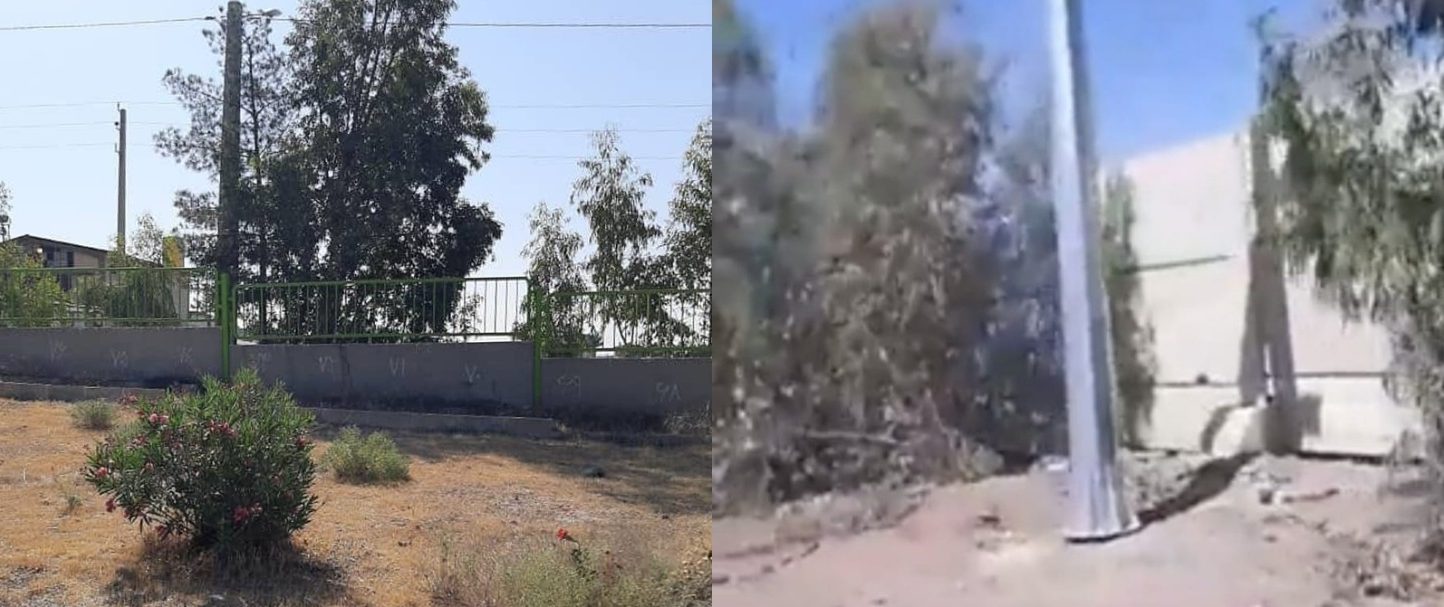States engaging at the UN Human Rights Council must call on the Iranian authorities to stop concealing the mass graves of victims of the 1988 “prison massacres” and immediately open an international investigation into the extrajudicial execution and enforced disappearance of thousands of dissidents amounting to ongoing crimes against humanity, Amnesty International said today.
In recent months, Iranian authorities have erected fresh two-metre-high concrete walls months around the Khavaran mass graves outside Tehran where the remains of several hundred political dissidents executed in secret in 1988 are believed to be buried. The construction has sparked serious concerns that the authorities can more easily destroy or tamper with the mass grave site away from public view as the site is no longer visible from the outside and its entrance is guarded by security agents who only permit relatives to enter on certain days.
“The Iranian authorities cannot simply build a wall around a crime scene and think that all their crimes will be erased and forgotten. For 34 years, the authorities have systematically and deliberately concealed and destroyed key evidence that could be used to establish the truth about the scale of the extrajudicial executions carried out in 1988 and obtain justice and reparations for the victims and their families,” said Diana Eltahawy, Deputy Director for the Middle East and North Africa at Amnesty International.
“It should shock the conscience of humanity that thousands of political dissidents remain forcibly disappeared in Iran, while those who should be investigated for serious crimes under international law have risen to top executive and judicial positions where they continue to inflict suffering on relatives. This abomination must end once and for all, and the UN Human Rights Council must urgently establish an independent investigative mechanism to uncover the truth and as a step towards bringing those suspected of responsibility to justice.”
Five security cameras have also been erected both inside the Khavaran mass grave site and in the street outside to intimidate mourning families and deter members of the public from visiting the site to pay their respects.
The Khavaran mass graves lie in a grave site outside Iran that also contains several individual graves belonging to political dissidents executed in the early 1980s and Golestan Javid cemetery where the persecuted Baha’i minority bury their loved ones.
Amnesty International has reviewed photographs and video footage of the new walls and security cameras to corroborate the accounts of family members who have visited the Khavaran mass grave site since late May 2022.
The Iranian authorities cannot simply build a wall around a crime scene and think that all their crimes will be erased and forgotten.
Diana Eltahawy, Amnesty International
For over three decades, the Iranian authorities have tried to cover up evidence of the prison massacres by repeatedly bulldozing over confirmed or suspected mass grave sites and destroying ad hoc grave markings and trees planted by families.
Relatives, survivors and human rights defenders have been consistently forbidden from gathering at mass grave sites to commemorate the victims and prevented from erecting memorials or laying flowers. Some have been prosecuted and jailed in reprisal for seeking truth and justice.
Some mass grave sites have even been turned into rubbish dumps. In April 2021, the Iranian authorities also pressured members of the persecuted Baha’i minority to bury their loved ones at the Khavaran mass grave site.
To further conceal the fate and whereabouts of the victims, the authorities have also refused to issue death certificates and removed victims’ names from burial records.
UN Human Rights Council must heed expert calls for an international investigation
In September 2020, a group of UN experts including the UN Working Group on Enforced and Involuntary Disappearances (WGEID), warned that past and ongoing violations related to the prison massacres in Iran in 1988 “may amount to crimes against humanity” and that they will call for an international investigation if these violations persist.
In August 2021, WGEID reiterated its concerns about the ongoing concealment of burial sites, recalled that the crime of enforced disappearance continues until the fate and whereabouts of the individuals concerned are established, and called for an international investigation.
“States engaging at the UN Human Rights Council have a moral obligation to stand with families, victims, and survivors of atrocities in Iran including the 1988 prison massacres and heed the calls of UN experts for the establishment of an international investigative mechanism. Members of the international community, including those involved in nuclear talks with Iran, must not shy away from speaking up for political gains. They should take concrete measures to tackle the ongoing crisis of systemic impunity in a country which has seen the rise to presidency of Ebrahim Raisi, who must be investigated for crimes against humanity,” said Diana Eltahawy.
Background
Not a single official has been brought to justice in Iran for the past and ongoing crimes against humanity linked to the 1988 “prison massacres”; and some of those involved hold or have held high positions of power in Iran. Iran’s current president and former head of the judiciary Ebrahim Raisi was a member of the “death commission” which carried out the enforced disappearance and extrajudicial execution of several thousand political dissidents in Evin and Gohardasht prisons near Tehran between late July and early September 1988.
Other members of the so-called “death commissions” who must be investigated for crimes against humanity include Alireza Avaei, who was the minister of justice from 2017 to 2021; Hossein Ali Nayyeri, who is the head of the Supreme Disciplinary Court for Judges; Mohammad Hossein Ahmadi, who is a current member of a key constitutional body; and Mostafa Pour Mohammadi, who was the minister of justice between 2013 and 2017 and is currently a senior advisor to the head of the judiciary.


